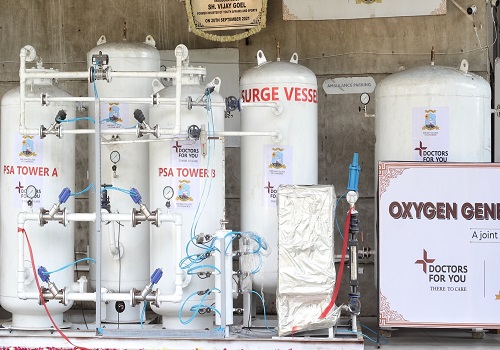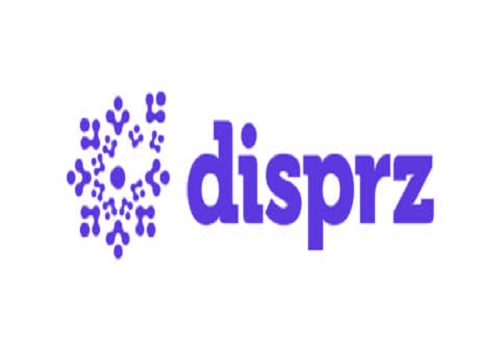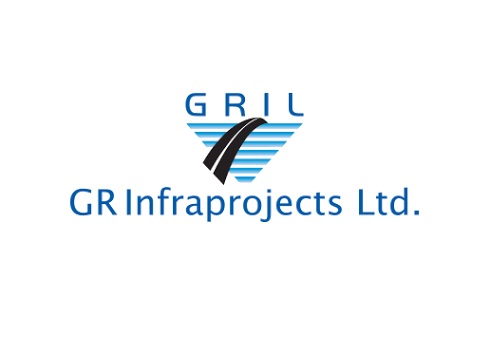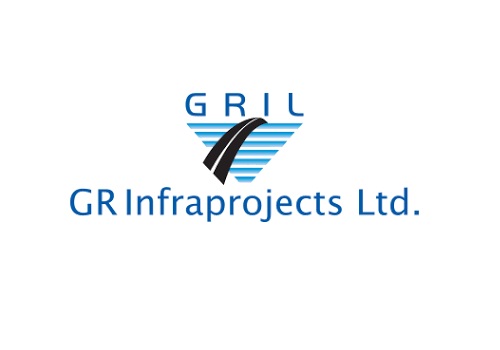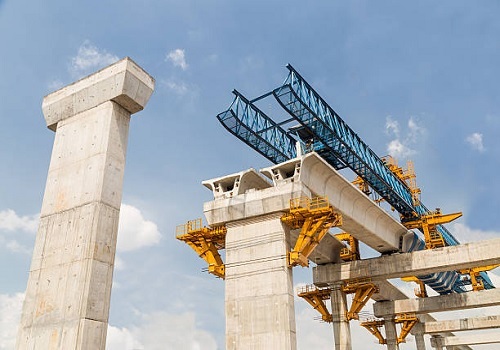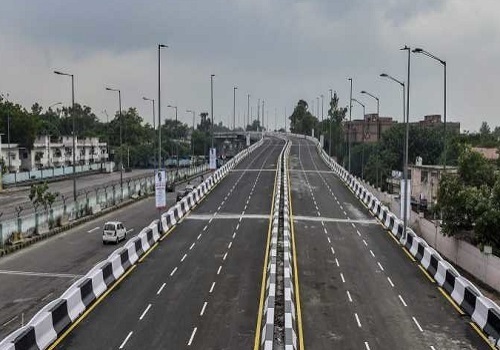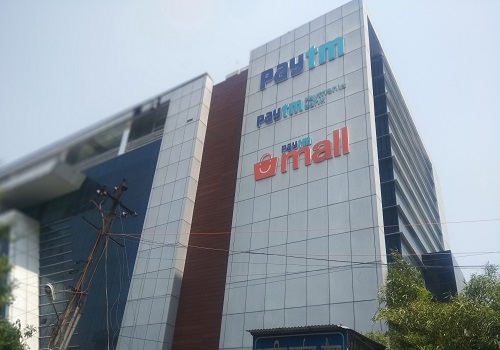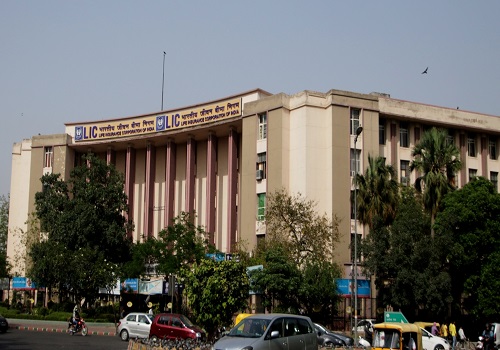G R Infraprojects coming with an IPO to raise upto Rs 963 crore
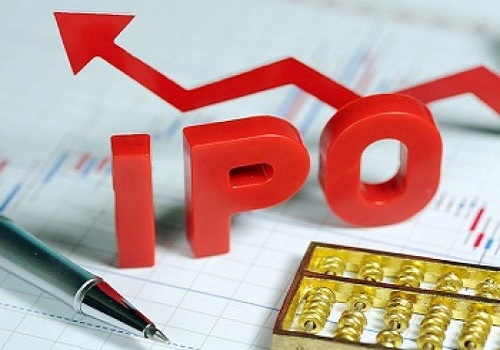
Follow us Now on Telegram ! Get daily 10 - 12 important updates on Business, Finance and Investment. Join our Telegram Channel
G R Infraprojects
-
G R Infraprojects is coming out with a 100% book building; initial public offering (IPO) of 11,508,704 shares of Rs 5 each in a price band Rs 828-837 per equity share.
-
Not less than 50% of the issue will be allocated to Qualified Institutional Buyers (QIBs), including 5% to the mutual funds. Further, not more than 15% of the issue will be available for the non-institutional bidders and the remaining 35% for the retail investors.
-
The issue will open for subscription on July 07, 2021 and will close on July 09, 2021.
-
The shares will be listed on BSE as well as NSE.
-
The face value of the share is Rs 5 and is priced 165.60 times of its face value on the lower side and 167.40 times on the higher side.
-
Book running lead manager to the issue are HDFC Bank, ICICI Securities, Kotak Mahindra Capital Company, Motilal Oswal Investment Advisors, SBI Capital Markets and Equirus Capital.
-
Compliance Officer for the issue is Sudhir Mutha.
Profile of the company
The company is an integrated road engineering, procurement and construction (EPC) company with experience in design and construction of various road/highway projects across 15 States in India and having recently diversified into projects in the railway sector. Its principal business operations are broadly divided into three categories: (i) civil construction activities, under which it provide EPC services; (ii) development of roads, highways on a Build Operate Transfer (BOT) basis, including under annuity and Hybrid Annuity Model (HAM); and (iii) manufacturing activities, under which it process bitumen, manufacture thermoplastic road-marking paint, electric poles and road signage and fabricate and galvanize metal crash barriers.
The company’s principal business of civil construction comprises EPC and BOT projects in the road sector. It has, since 2006, executed over 100 road construction projects. It also has experience in constructing state and national highways, bridges, culverts, flyovers, airport runways, tunnels and rail over-bridges. It has over the years developed an established road EPC business and has gradually added facilities to support and supplement its road construction business. As part of its in-house integrated model, it has developed in house resources with key competencies to deliver a project from conceptualization to completion that includes its design and engineering team, three manufacturing units at Udaipur, Rajasthan, Guwahati, Assam and Sandila, Uttar Pradesh for processing bitumen, thermoplastic road-marking paint and road signage and a fabrication and galvanization unit at Ahmedabad, Gujarat for manufacturing metal crash barriers and electric poles.
Proceed is being used for:
-
Achieving the benefits of listing the equity shares on the stock exchanges.
-
Making an offer for sale of up to 11,508,704 equity shares by the selling shareholders aggregating up to Rs 963 crore.
Industry overview
The infrastructure sector encompasses roads, power, railways, urban infrastructure, and irrigation among others. The sheer size and magnitude of major infrastructure development projects dictate substantial capital investment. The government introduced significant policy reforms to augment foreign direct investment (FDI) inflows to further boost investment and enhance infrastructure in the country. The Indian government’s policy reforms resulted in total FDI inflows of $16.3 billion in construction activities in infrastructure from fiscal 2001 to fiscal 2020, as per the Department of Industrial Policy & Promotion data. The roads sector accounted for 49% of total investments in the infrastructure industry over fiscal year 2015-19. Currently, 12-15% of the investment in state roads is through public and private partnerships. A few states such as Karnataka and Maharashtra have awarded projects under HAM. However, private investments in the infrastructure industry reduced from ~26% in fiscal 2010 to 17% (expected) in fiscal 2020 mainly due to higher risks borne by private investors with respect to the PPP model.
The total construction spend in the overall infrastructure segment from fiscal 2015 to fiscal 2019 was valued at Rs 17.93 trillion. Of this, the roads sector accounted for Rs 8.7 trillion followed by the irrigation sector with a share of 16.1% valued at Rs 2.9 trillion. Of the total construction spend in the infrastructure sector, roads had a share of 48.3% in fiscal 2015-19. Investments were largely driven by the government’s implementation of the National Highways Development Project (NHDP) and continued emphasis on improving the rural and state road network by various state governments has supported growth.
India has the second-largest road network in the world, spanning 6.5 million km. Road transportation, the most frequently used mode of transportation in India, accounts for about 86% of passenger traffic and close to 67% of freight traffic. Although Indian national highways span nearly 136,440 km, constituting just 2% of road length, they accounted for about 40% of total road traffic in fiscal 2020. The secondary system of roads comprise state roads and major district roads, which accounted for the remaining 60% of traffic and 98% of road length. Road transportation is the most frequently used mode of transportation for freight and passengers in India. In fiscal 2020, roads accounted for 67% of total freight (in terms of billion-tonne-kilometre; BTKM), while railways accounted for 22%. In fiscal 2010, roads accounted for approximately 56% of total freight traffic, which increased to 63% in fiscal 2015.
Pros and strengths
Focused EPC player with road projects focus: The company has over 25 years of experience in executing EPC projects which have been in the road sector comprising construction and development of state and national highways, bridges, culverts, flyovers, airport runways, tunnels and rail over-bridges. Since 2006, it has executed more than 100 road construction projects. It has historically had a focus on the road projects whilst executing EPC projects and accordingly has established its credentials as an EPC player capable of executing a range of these construction projects that involve varying degrees of complexity. Its focused approach will enable it to benefit from future market opportunities and expand into new markets, and combined with its technical experience and pricing, will be critical in competing in the industry. Consequently, in March and May 2018, it has been awarded two projects for the railways sector which include earthwork, construction of bridges and supply of materials and track linking and civil engineering works.
Established track record of timely execution: With the company’s experience of over 25 years and more than 100 road construction projects executed since 2006, it has developed an established track record of efficient project management and execution experience, involving trained and skilled manpower, efficient deployment of equipment and an in-house integrated model. These attributes have enabled it to complete projects prior to or by scheduled timelines. Its in-house materials supply chain management ensures that key construction materials are timely delivered to its manufacturing facilities and construction sites, thereby enabling it to manage its processes effectively and maintain its key raw material inventory in an optimal manner. Its project management team, working in conjunction with the design and engineering team, ensures operational efficiencies through overall supervision of the manufacturing and project execution process.
In-house integrated model: The company undertakes its construction business in an integrated manner as it has developed key competencies and resources in-house to deliver a project from conceptualization until completion. Its in-house integrated model includes a design and engineering team, manufacturing facilities for processing of bitumen, thermoplastic road marking paint and road signage, fabrication and galvanization unit for manufacture of metal crash barriers, owned construction equipment and a fleet of transportation vehicles. Its manufacturing facilities for processing of bitumen located in Udaipur, Rajasthan, Sandila, Uttar Pradesh and Guwahati, Assam and fabrication and galvanization unit for manufacturing metal crash barriers and electric poles located at Ahmedabad, Gujarat and thermoplastic road-marking paint and road signage manufacturing unit, also located in Udaipur, Rajasthan cater to the key components that it requires in the construction and development of its projects. Its manufacturing facilities help reduce its dependence on third party suppliers for its key materials i.e., bitumen emulsion, as well as other products required for completion of roads such as signages, overhead structures and toll canopies.
Experienced promoters with strong management team: The company has seen robust business growth under the vision, leadership and guidance of its individual Promoters, who have more than 25 years of experience in the construction industry. Prior to incorporation of the company, its individual Promoters were associated with Gumani Ram Agarwal, a partnership firm, whose business was acquired by Company in 1996. Its Promoters have played a key role in the development of its business and it benefit from their industry knowledge and expertise, vision and leadership. Its Promoters have strong operational knowledge, good relationships with its clients and a successful track record of executing infrastructure projects. In addition to its individual Promoters, its senior management team includes qualified, experienced and skilled professionals who have experience across various sectors.
Risks and concerns
Primarily dependent on road projects in India: The company’s business is primarily dependent on road projects in India undertaken or awarded by governmental authorities and other entities funded by the GoI or state governments. It currently derive majority of its revenues from contracts with a limited number of government entities, including NHAI and MoRTH. Larger contracts from few customers may represent a larger part of its Order Book, increasing the potential volatility of its results and exposure to individual contract risks. Further, there can be no assurance that the GoI or the state governments will continue to place emphasis on the road infrastructure or related sector. In the event of any adverse change in budgetary allocations for infrastructure development or a downturn in available work in the road infrastructure sector or resulting from any change in government policies or priorities, its business prospects and its financial performance, may be adversely affected.
Derive majority of revenue from civil construction: The company’s business depends significantly on its ability to bid for and be awarded the projects including engineering, procurement and construction (EPC) projects as well as its Build-Operate-Transfer (BOT) projects (wherein the company undertakes the EPC component of the project). The company bid for projects on an ongoing basis and infrastructure projects are typically awarded by the GoI following a competitive bidding process and satisfaction of prescribed qualification criteria. There can be no assurance that it would be able to meet such criteria, whether independently or together with other joint venture partners. In addition, it cannot assure you that it would bid where it has been qualified to submit a bid or that its bids, when submitted or if already submitted, would be accepted. Its business, growth prospects and financial performance largely depends on its ability to obtain new contracts, and there can be no assurance that it will be able to procure new contracts. Its future results of operations and cash flows may fluctuate from period to period depending on the timing of its contract. In the event it is unable to obtain new contracts, its business will be materially and adversely affected.
Business requires significant amount of working capital: The company’s business requires a significant amount of working capital which is based on certain assumptions, and accordingly, any change of such assumptions would result in changes to its working capital requirements. A significant amount of working capital is required to finance the purchase or manufacturing of materials, mobilization of resources and other work on projects before payment is received from clients. Further, since the contracts it bid typically involve a lengthy and complex bidding and selection process which is affected by a number of factors, it is generally difficult to predict whether or when a particular contract it has bid for will be awarded to it and the time period within which it will be required to mobilize its resources for the execution of such contract. As a result, it may need to incur additional indebtedness in the future to satisfy its working capital requirements. Its working capital requirements may increase if it undertakes larger or additional projects or if payment terms do not include advance payments or such contracts have payment schedules that shift payments toward the end of a project or otherwise increase its working capital burden.
Dependent on significant number of contract labour: The company’s operations are significantly dependent on access to a large pool of contract labour for its construction work and the execution of its projects. The number of contract labourers employed by it varies from time to time based on the nature and extent of work it is involved in. Its dependence on such contract labour may result in significant risks for its operations, relating to the availability and skill of such contract laborers, as well as contingencies affecting availability of such contract labour during peak periods in labour intensive sectors such as itself. There can be no assurance that it will has adequate access to skilled workmen at reasonable rates and in the areas in which it execute its projects. As a result, it may be required to incur additional costs to ensure timely execution of its projects.
Outlook
G R Infraprojects is an integrated road engineering, procurement, and construction company with experience in designing and construction activities and road/highway projects. It mainly undertakes civil construction projects under the EPC and BOT (Build Operate Transfer) basis in the road sector but also diversified into manufacturing activities of thermoplastic road-making paints, electric poles, road signages, and fabricating metal crash barriers. Its principal business of civil construction comprises EPC and BOT projects in the road sector. It has, since 2006, executed over 100 road construction projects. It has over the years developed an established road EPC business and has gradually added facilities to support and supplement its road construction business. It undertake its construction business in an integrated manner as it has developed key competencies and resources in-house to deliver a project from conceptualization until completion. On the concern side, majority of company’s projects are undertaken on a non-recurring basis, therefore, it is critical that it is able to continuously and consistently secure new projects of similar value and volume. There is no assurance that it will be able to do so or get projects where it has prior experience. It operates in a competitive environment and its competition is based on size, nature, complexity and location of projects, price, proximity of materials to the local market, the availability of sub-contractors, construction workers and local economic conditions.
The issue has been offered in a price band of Rs 828-837 per equity share. The aggregate size of the offer is around Rs 952.92 crore to Rs 963.27 crore based on lower and upper price band respectively. On the performance front, the company’s total income increased by Rs 14,832.38 million, or 23.09% from Rs 64,237.05 million in Fiscal 2020 to Rs 79,069.43 million in Fiscal 2021. The company’s profit for the year increased by Rs 1,523.89 million, or 19.03%, from Rs 8,008.32 million (comprising 12.47% of its total income) in Fiscal 2020, to Rs 9,532.21 million (comprising 12.06% of its total income) in Fiscal 2021. The company continues to maintain and strengthen its market position of its EPC business in India. Over the next few years, it will continue to focus on construction of its existing projects while seeking opportunities to expand its portfolio of road projects. It intends to draw on its experience, asset base, market position and ability to execute and manage multiple projects across various geographies, to further grow its portfolio of road and other EPC projects.












 320-x-100_uti_gold.jpg" alt="Advertisement">
320-x-100_uti_gold.jpg" alt="Advertisement">


